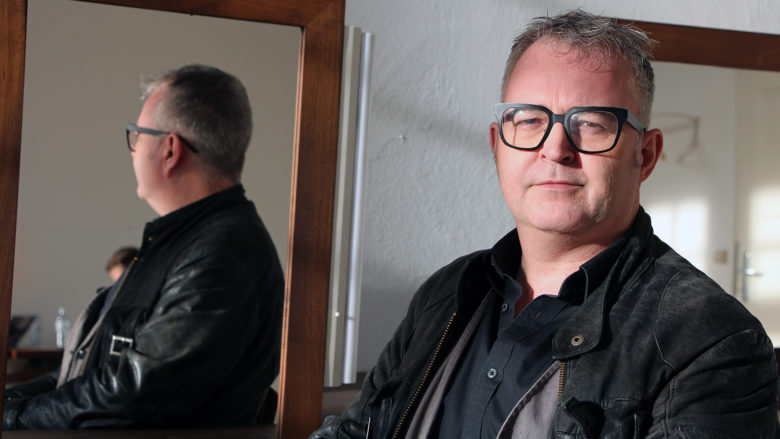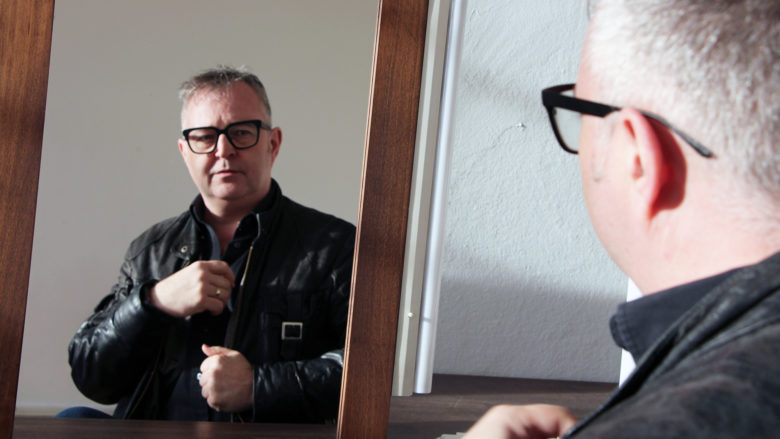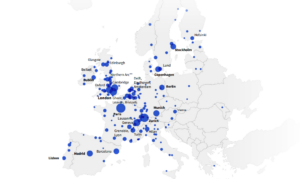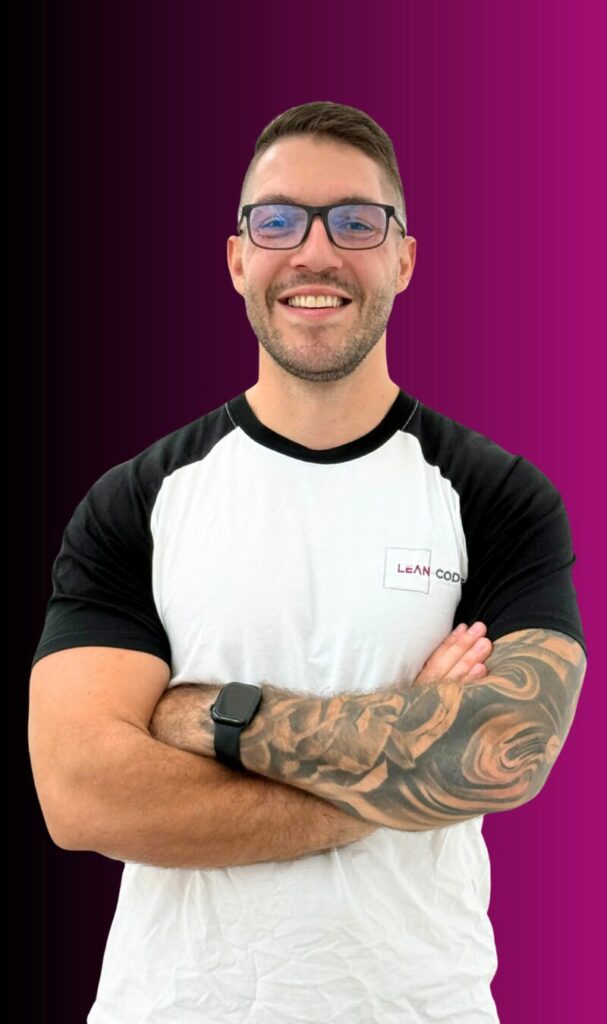Mike Butcher: „You Have to be a Little Bit Crazy to be a Technology Entrepreneur“

Usually we don’t do interviews with other journalists. But Mike Butcher, Editor-at-large at Techcrunch, is a well-known member of the European startup scene and probably got a lot of pitch e-mails from Austrian entrepreneurs. So we decided to sit down with him to talk about cryptocurrency, transparency in the media business and how he decides which startups he covers.
Trending Topics: A journalist interviewing another journalist – should we really do this?
Mike Butcher: Oh my god! The world will explode! Go on.
You are following the startup business since many years…
Yeah, since 1850.
…since 1850…
I´m joking.
I know. So, what excites you most these days?
You could not deny that blockchain and cryptocurrencies have been a fantastic and fascinating new area for technology in the last few years, particularly in the last 18 months. The have really exploded as a brand new way of looking at technology and the internet. With the collapse of cryptocurrency prices, this is going the most interesting time now. A crash in technology tends to produce the real things. If you look at the period between 2000 and 2004 after the crash in 1999, that was when the biggest companies emerged, like Google.
The other thing is the rise of Artificial Intelligence. Machine learning and neural networks are really starting to affect entire industries. Every aspect of industries will be affected by this. I could keep going…
Let´s talk about crypto and the blockchain. Are we, the media, responsible for this hype?
I don’t think so. The crypto community is very capable of hype. Unfortunately, because of the amounts of money involved, there have been many bad actors in the space. They made a lot of money by pumping and dumping and manipulating the markets. The media is not so much to blame. The point is: There is no regulation. That Wild West economy, that’s why this bubble developed. There are cryptocurrency media out there, and some of them have done paid articles, which is not journalism. That, obviously, has a part to play in this and should be avoided. The real issue is the lack of regulation.
You own crypto yourself…
Yeah, very small amounts. I precisely own two Bitcoins, thank you very much.
Is there a conflict of interest when you report about crypto?
To be brutally honest, it is a bit stupid if you are a journalist who writes about cryptocurrencies and not to know how to get them or how to use them. Everyone at Techcrunch who writes about it owns a small amount of cryptocurrency. That is to test the waters. Let’s be honest: If they would own a lot, would they still write for Techcrunch? Probably not. I think journalists own and use it in order to be able to write about it. Otherwise it’s like writing about the internet and not using the internet. The point about the conflict of interest is that you have to be transparent. Transparency is the name of the game.
You work in the digital media business since many years. Is it a good or bad time to work in media?
The media industry struggled with the rise of the internet. People thought that digital advertising would replace the revenues that were going down in classified advertising. With the rise of populist politicians like Trump, people now really value independent quality content over the hype content and clickbait that is generated by some other media outlets. If you look at the New York Times or subscription content like The Times in London, that has risen up. People want trusted content. These business models are starting to come through which hopefully will support digital media going forward.
Everyone can fire up an account on Facebook, Twitter or YouTube. Even they don’t really make much money these days. Oddly enough, Instagram celebrities used to make quite a lot of money, but now the don’t. The make money by traditional old fashioned sponsored content and by doing deals with brands.

Is Techcrunch thinking about a paywall?
Techcrunch has got a fantastic business model. We have got 16 million readers every month. We don’t just do online content, but we as journalists are also curators of global events, like Techcrunch Disrupt in San Francisco, where we saw 8.500 people come to the Moscone Center. We internationalized our Battlefield products and event programs to Zug in Switzerland, Tel Aviv, São Paulo, Beirut, Sydney, Shenzhen, Nairobi and Lagos in Nigeria. This internationalization really follows how technology has exploded around the globe.
Events have become a big part of your business?
Absolutely. We don’t just produce a conference where people are talking on stage. These conferences are curated entirely by editorial journalists. Everybody on stage is interviewed by a journalist. We make sure that people break news on stage.
What about the data business that Techcrunch started with Crunchbase?
Crunchbase initially came out of Techcrunch. When Techcrunch was acquired by AOL and then Verizon, Crunchbase was spun out into a seperate company. We have informal contact with them and use it every day, but it is not part of us now.
You have media outlets in China and Japan. Is Techcrunch also planning to launch in Continental Europe?
We don’t really think about editorial teams in a country. It’s time zones. We are like a mini Reuters. We have journalists in Paris, London, Barcelona, New York, San Francisco, Taiwan, Thailand, China. We don’t need journalists in a particular countries but we want to be able to cover the global news cycle. I’m based in London, and I go to Europe all the time. We are all on planes all the time.
How is Techcrunch dealing with censorship in China?
We publish on a service in the US, we can write anything we like. It is not hard to report from China.
Every startup wants its story on Techcrunch. How do you pick your stories, and how many stories do you reject?
Techcrunch is interested in new innovation. When you want to create a company and be an entrepreneur, then that is where we kick in. We don’t write about someone selling socks on the internet, but we write about someone who raises money to disrupt a market. To do that you have to raise venture capital money. These are people that want to go from zero to 1.000 percent in a very short period of time. To do that you need VC money. Those tend to be the rocket ships, and we like to write about rocket ships.
That does not mean that you have to have VC money, but it does help. There are so many companies, but an investor is a good filter to start with. The companies we feature on our stage, they had some seed financing, and they are interested in going to the next level. We had 778 Battlefield startups, they raised collectively 8.5 billion dollars in funding, about 100 of them exited. Dropbox or Mint came out of Techcrunch. We don’t take any equity.
Did you ever think about founding your own startup?
Luckily I’m a journalist and I know what I’m good at. I stick to things I’m good at. My attention span is far too short to be an entrepreneur. I’ve started some initiatives on subjects I’m passionate about – like a non-profit in the UK called Techfugees or TechVets to get military veterans into the technology industry. I a started a coworking space and I have done a couple of my own events. But prefer to build communities. To be a technology entrepreneur, you have to be a little bit crazy. You really have to believe in yourself. Such entrepreneurs are very interesting people – a great subject for journalists.



























